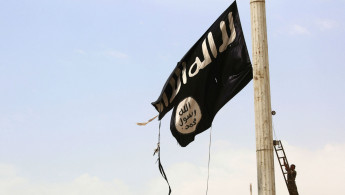Syria's Kurds to try IS militants refused repatriation by their home countries
The Kurdish-led administration in northeast Syria said it would begin trying thousands of suspected foreign Islamic State group fighters who have been its custody for years, surprising diplomats working on the issue and prompting concern about due process.
The U.S.-backed autonomous administration, which operates separately from the central government in Damascus, holds around 10,000 suspected IS detainees who fled the last bastions held by the militant group in Syria from 2017-2019.
Local officials have for years called on foreign countries - including Canada, France, the United Kingdom and others - to repatriate their nationals as well as the thousands of foreign women and children who fled IS's self-declared "caliphate" and are in detention camps.
On Saturday, the Kurdish-led administration said in an online statement that it had decided to submit detainees to its own "open, free and transparent trials" following the international community's lagging response.
Senior administration official Badran Jia Kurd told Reuters a local counter-terrorism law broadened last year would be used to try the fighters, adding the accused could appoint a lawyer but did not say courts would appoint one for them.
Northeast Syria does not practice capital punishment.
Jia Kurd said rights groups and the U.S.-led coalition, which helped Kurdish-led forces oust IS from swathes of northern Syrian territory, would be invited to attend the trials.
The coalition did not respond to a Reuters request for comment.
Syria's Kurds & Hayat Tahrir al-Sham are offering to host refugees. But will they return?
— The New Arab (@The_NewArab) June 5, 2023
✍ @pauliddon https://t.co/qEXyJ92XJq
The issue of foreign fighters is one of the most complex security and rights issues in Syria's 12-year war. Many countries have not repatriated nationals who joined IS, concerned that their counter-terrorism laws would not guarantee long prison sentences for them.
A Western diplomat working on Syria told Reuters the administration's decision was a surprise.
The idea had been discussed in the past but pushed aside primarily over questions on the legality of a regional court operating separately from the Syrian government.
"No one thought they were going to do this. We take it very seriously that they are holding a lot of people – but this is a separate issue from trying them. Trying them is a whole different beast," the diplomat said.
The diplomat said such trials would need particularly high levels of security and that the risk of a breakout by IS fighters would become higher.
Letta Tayler, counter-terrorism specialist at Human Rights Watch, said the international community should either back the trials in northeast Syria - including with resources - or support prosecutions at home or in a third country.
"Anything less is not only a violation of these detainees' rights to due process. It's also a slap in the face to victims of IS and their family members, who deserve to see justice served for IS crimes," she told Reuters.
(Reuters)




 Follow the Middle East's top stories in English at The New Arab on Google News
Follow the Middle East's top stories in English at The New Arab on Google News


![A group of Palestinians, foreign and Israeli activists gather to participated in an olive picking event on the land in the town of Battir, which is under threat of confiscation by Israel in Bethlehem, occupied West Bank on 8 November 2024. [Getty]](/sites/default/files/styles/image_330x185/public/2182930803.jpeg?h=199d8c1f&itok=__0LgGsa)